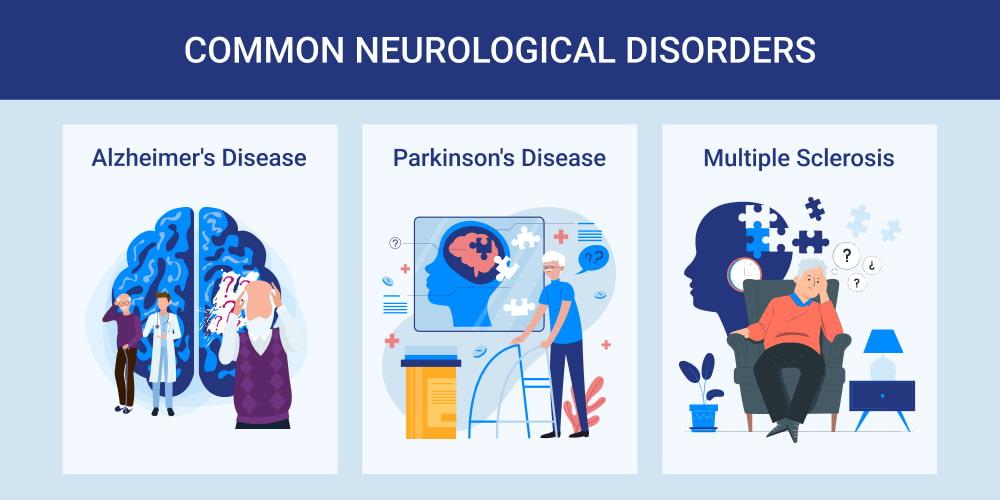Understanding the Top 3 Most Common Neurological Disorders

Neurological disorders are among the leading causes of disability worldwide, affecting millions of people each year. These conditions disrupt how the brain, spinal cord, and nerves function, leading to symptoms that impact movement, sensation, and cognition. At the Neurology and Pain Management Clinic (NPMC), Dr. Gautam Arora (MBBS, MD, DM) offers expert diagnosis and personalised care for patients suffering from neurological conditions, ensuring early intervention and effective management. Here’s an overview of the top three most common neurological disorders — and how they can be treated.
1. Migraine
Migraine is more than just a severe headache; it’s a complex neurological condition that can cause throbbing pain, nausea, and sensitivity to light or sound. Some people also experience visual disturbances known as “aura” before the onset of pain. Triggers may include stress, hormonal changes, certain foods, or lack of sleep.
At NPMC, Dr Gautam Arora focuses on identifying individual migraine triggers and developing a tailored treatment plan. This may include preventive medications, lifestyle modifications, and advanced therapies like nerve blocks or Botox injections for chronic cases. With proper management, patients can significantly reduce the frequency and intensity of migraine attacks, improving their overall quality of life.
2. Stroke
A stroke occurs when the blood supply to part of the brain is interrupted or reduced, depriving brain tissue of oxygen and nutrients. It’s a medical emergency that requires immediate attention, as every minute counts in preventing permanent brain damage. Common symptoms include sudden weakness, facial drooping, difficulty speaking, and vision loss.
Dr Arora emphasises that early recognition and intervention are key to recovery. At NPMC, post-stroke rehabilitation focuses on restoring strength, speech, and cognitive functions through a combination of medication, physical therapy, and ongoing neurological care. Preventive measures such as blood pressure control, diabetes management, and lifestyle adjustments also play a crucial role in reducing stroke risk.
3. Peripheral Neuropathy
Peripheral neuropathy refers to damage to the peripheral nerves, which transmit signals between the brain, spinal cord, and body. It often presents as tingling, numbness, or burning sensations in the hands and feet. Common causes include diabetes, infections, injuries, and exposure to toxins.
At Neurology and Pain Management Clinic, Dr Gautam Arora uses advanced diagnostic tools such as nerve conduction studies to determine the underlying cause. Treatment may involve managing the root condition (like diabetes), prescribing medications to relieve nerve pain, and using therapies that promote nerve repair and improved circulation.
Comprehensive Neurology Care at NPMC
Neurological disorders can be life-altering, but with expert evaluation and targeted care, recovery and symptom control are possible. Under the guidance of Dr Gautam Arora, patients at NPMC receive compassionate, evidence-based treatment for a wide range of neurological and pain-related conditions.
If you or a loved one experiences persistent headaches, weakness, or numbness, don’t ignore the signs. Early consultation with a neurologist can make all the difference in diagnosis, treatment, and long-term well-being.
- AI
- Vitamins
- Health
- Admin/office jobs
- News
- Art
- Causes
- Crafts
- Dance
- Drinks
- Film
- Fitness
- Food
- Oyunlar
- Gardening
- Health
- Home
- Literature
- Music
- Networking
- Other
- Party
- Religion
- Shopping
- Sports
- Theater
- Wellness


